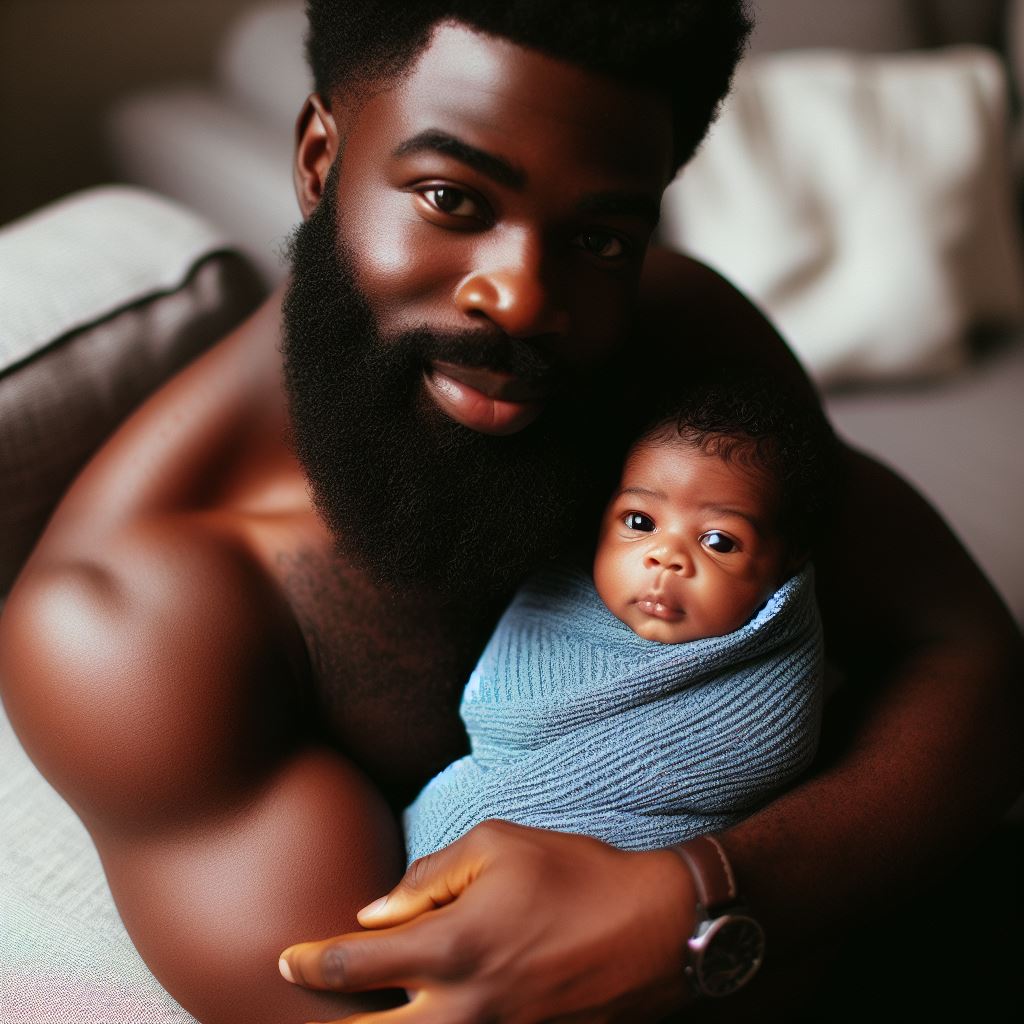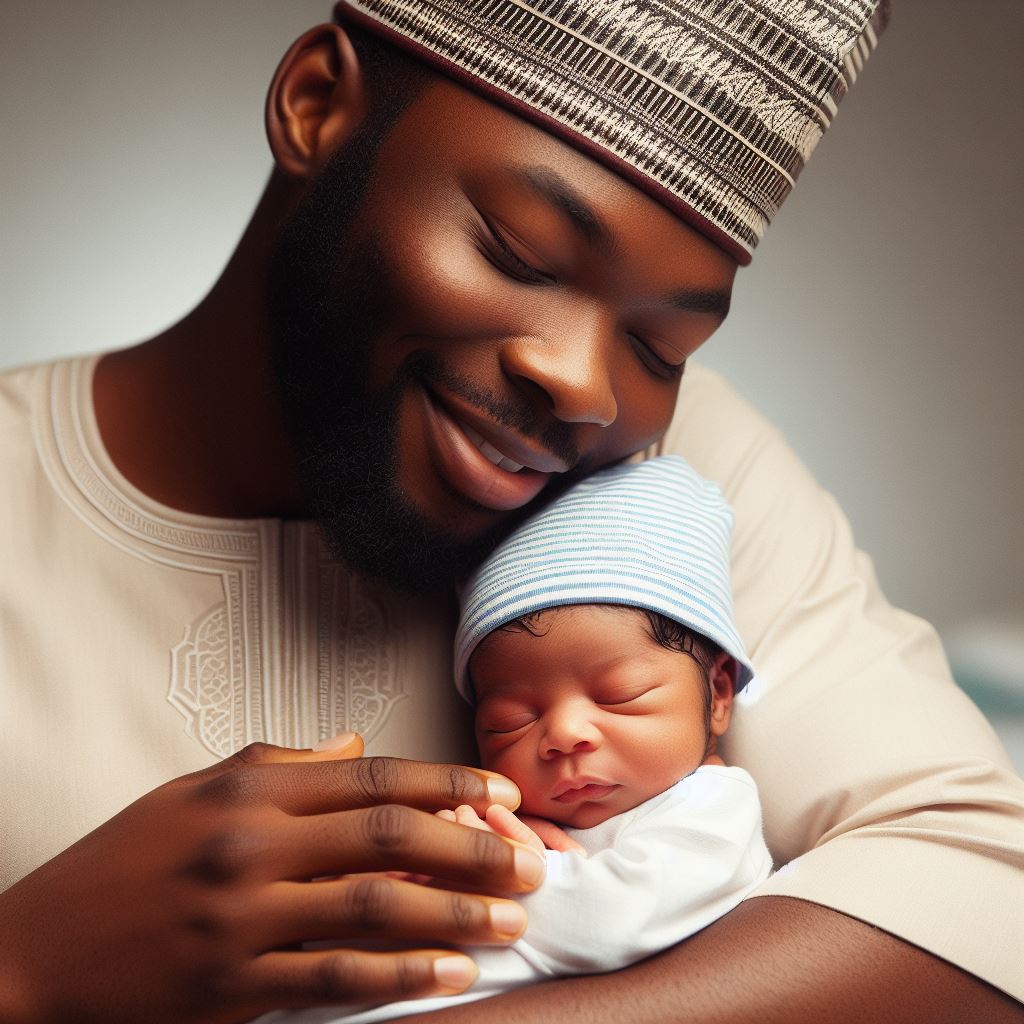Introduction
New Nigerian dads face culturally rooted expectations, shaping their parenting journey significantly.
These norms, deeply embedded within Nigerian society, play a pivotal role in defining fatherhood roles and responsibilities.
Navigating Cultural Expectations: An Imperative
Understanding and adeptly navigating these expectations is crucial.
It not only fosters familial harmony but also ensures a smooth integration of modern practices with traditional beliefs.
Failure to grasp these norms might lead to conflicts or misunderstandings within the family unit.
Aim of this Blog Post
This blog aims to provide invaluable insights and practical advice for new Nigerian dads.
By shedding light on these cultural expectations and offering guidance, it intends to empower fathers to navigate this intricate landscape confidently.
Understanding these cultural nuances can aid in fostering a stronger bond between fathers and their families while harmonizing tradition with modern parenting approaches.
Understanding and respecting these cultural norms is the first step towards establishing a strong and supportive family environment.
In Nigeria, the societal expectation of fathers extends beyond just being a provider; it encompasses active involvement in child-rearing, discipline, and moral upbringing.
Neglecting these societal norms might lead to friction within the family and social spheres.
Hence, comprehending these expectations becomes vital for a new dad’s holistic growth and the well-being of his family.
Throughout this blog series, we will delve into various facets of Nigerian cultural expectations.
From the significance of extended family roles to the rituals surrounding childbirth, each aspect will be explored to offer practical advice for new fathers navigating these customs.
Stay tuned for insights on managing expectations, balancing traditional values with modern parenting styles, and fostering a nurturing environment while embracing the essence of Nigerian culture.
Parenting Made Just for You
Get personalized Parenting Solutions tailored to your child’s needs. Transform your parenting journey with expert guidance in 1-3 days.
Get StartedJoin us on this enlightening journey to empower and support new Nigerian dads!
Traditional Gender Roles in Nigerian Culture
Traditional roles assigned to men and women in Nigerian culture
- Men are expected to be the primary providers and breadwinners of the family.
- Women are traditionally assigned domestic responsibilities such as cooking, cleaning, and child-rearing.
- Men are encouraged to be assertive, dominant, and authoritative.
- Women are expected to be submissive, respectful, and nurturing.
- Men are usually the decision-makers in the family and have a higher status in society.
- Women are often restricted in their career choices and are expected to prioritize their family.
- Men are expected to be the leaders of their households and to be in control.
- Women are meant to support their husbands and prioritize the well-being of their children.
- Men are expected to display strength, courage, and character.
- Women are often judged based on their beauty, modesty, and ability to maintain harmonious relationships.
The patriarchal nature of Nigerian society
- Nigerian society is deeply rooted in a patriarchal system where men hold power and authority.
- Males typically inherit family wealth and property, ensuring the continuation of male dominance.
- Women face limitations in accessing education, employment opportunities, and positions of leadership.
- Women are often subjected to harmful traditional practices such as child marriage and female genital mutilation.
- The legal and judicial systems in Nigeria also tend to favor men over women.
Influence of gender roles on cultural expectations for new Nigerian dads
- New Nigerian dads are expected to conform to these traditional gender roles and societal expectations.
- They are supposed to be the primary providers for their families and take on the responsibility of financial stability.
- These cultural expectations can place immense pressure on men to excel in their careers and provide for their families.
- Men may feel obligated to prioritize work over spending time with their children and may struggle with work-life balance.
- New Nigerian dads are also expected to exhibit traits of leadership, authority, and decision-making.
- They might find it challenging to show vulnerability or seek help in their parenting journey.
- If a new Nigerian dad is unable to meet these cultural expectations, he may face societal judgment and criticism.
- These gender roles can hinder men from actively participating in child-rearing activities and connecting emotionally with their children.
- Challenging these cultural expectations allows room for new Nigerian dads to embrace more egalitarian parenting practices.
- Encouraging shared responsibilities between parents can foster healthier relationships within families and promote gender equality.
By understanding the traditional gender roles and the patriarchal nature of Nigerian society, we can challenge these cultural expectations and create a more inclusive environment for new Nigerian dads.
It is essential to promote equality and encourage men to actively engage in parenting, contributing to the overall well-being of their families.
Read: Dads and Baby Sleep Patterns: Tips and Tricks
Expectations for New Nigerian Dads
Importance of fatherhood in Nigerian culture
In Nigerian culture, fatherhood holds a significant place of importance.
Nigerian dads are expected to be present, involved, and demonstrate their commitment to their families.
They play a crucial role in raising children and contribute to the overall development and well-being of their households.
Expectation of being the provider and protector
One of the key expectations of Nigerian dads is to be the provider and protector of their families.
They are seen as the primary breadwinners and are expected to work diligently to meet the financial needs of their households.
This responsibility lies at the core of Nigerian fatherhood, and it is deeply ingrained in the cultural fabric of the society.
In addition to being providers, Nigerian dads are also expected to fulfill the role of protectors.
They must ensure the safety and security of their families, both physically and emotionally.
This involves creating a nurturing environment where their children feel safe and protected from harm.
Nigerian dads take pride in their ability to shield their loved ones from adversity and danger.
Unveil the Perfect Name that Tells Your Family's Story
Let us help you find a name that embodies your family's values, traditions, and dreams. Our personalized consultation weaves cultural insights to create a name that's uniquely yours.
Get StartedBelief in disciplining and molding children’s behavior
Discipline plays a crucial role in Nigerian parenting, and fathers have a substantial role in shaping their children’s behavior.
Nigerian dads are expected to set clear boundaries and enforce discipline when necessary.
By doing so, they aim to teach their children moral values, respect for authority, and the importance of hard work.
The disciplining aspect of fatherhood is seen as a way to prepare children for success in adulthood.
Responsibility of passing down cultural traditions and values
Moreover, Nigerian dads are tasked with the responsibility of passing down cultural traditions and values.
Parents should actively teach their children ethnic heritage, language, customs, and traditional practices.
Nigerian culture highly values preserving its rich history, viewing fathers as torchbearers of this legacy.
By instilling cultural pride and knowledge in their children, Nigerian dads ensure that their traditions live on for generations to come.
In fact, becoming a dad in Nigerian culture comes with a set of expectations.
Nigerian society reveres fathers for providing, protecting, disciplining, and safeguarding cultural heritage as custodians.
Their active involvement in their families’ lives is crucial for the growth and well-being of their children and the preservation of Nigerian traditions.
Embracing these expectations allows Nigerian dads to leave a lasting impact on their families and society as a whole.
Read: Navigating Paternity Leave in Nigeria

Balancing Modern Parenting and Cultural Expectations
Impact of globalization and changing societal norms
Globalization has brought significant changes to Nigerian society, impacting cultural expectations for new dads.
Women challenging traditional gender roles by gaining more educational and professional opportunities, altering societal norms. This shift questions established gender roles.
Nigerian dads now face the pressure to balance modern parenting roles with cultural expectations placed on them.
Challenges faced by new Nigerian dads in balancing modern parenting with traditional expectations
Nigerian culture tends to emphasize strict gender roles, expecting men to be providers and disciplinarians.
New dads may struggle to meet these traditional expectations while also wanting to actively participate in childcare.
Balancing work responsibilities and family commitments can lead to stress and feelings of inadequacy for new dads.
The fear of judgment from family and society can make it challenging for new dads to navigate their roles.
Tips and strategies for navigating these expectations while embracing modern parenting approaches
- Communicate with your partner: Openly address expectations and work together to find a balance.
- Seek support from like-minded dads: Join parenting forums or groups to share experiences and advice.
- Educate family members: Explain the importance of shared parenting and the benefits it brings to the child.
- Embrace gradual change: Challenge cultural expectations by making small changes and showing the positive outcomes.
- Prioritize self-care: Take time for yourself to recharge and relieve stress, ensuring you can be a better parent.
- Set realistic goals: Don’t strive for perfection; focus on being present and involved in your child’s life.
- Reflect on your own upbringing: Learn from your own experiences and incorporate the positive aspects into your parenting style.
- Be patient with yourself and others: Change takes time, and not everyone may be accepting of modern parenting approaches.
By acknowledging the impact of globalization and changing societal norms, new Nigerian dads can begin the journey of balancing modern parenting with cultural expectations.
It is essential to recognize the challenges they face and seek strategies for navigating these expectations while embracing modern parenting approaches.
In short, the traditional expectations placed on new Nigerian dads can be challenging to balance with modern parenting roles.
However, by openly communicating with their partners, seeking support, educating family members, and embracing gradual change, new dads can navigate these expectations while still actively participating in their child’s life.
It is crucial to prioritize self-care, set realistic goals, reflect on personal experiences, and practice patience throughout this journey.
Balancing cultural expectations and modern parenting approaches is possible, creating a more fulfilling and inclusive parenting experience for Nigerian dads and their families.
Read: Parenting Classes: Why Nigerian Dads Should Join
Support Systems for New Nigerian Dads
Importance of community and family support
- Community and family support plays a crucial role in easing the transition into fatherhood.
- Having a strong support system helps new Nigerian dads feel more confident and capable.
- Family and community members can provide emotional support and understanding during challenging times.
- Supportive communities create an environment where new dads can openly share their concerns and experiences.
- Community support also offers opportunities to connect with other dads facing similar challenges.
Role of extended family members in providing guidance and assistance
- Extended family members, such as grandparents, aunts, and uncles, are essential sources of wisdom.
- They can share cultural knowledge and offer valuable advice on parenting and child-rearing practices.
- Extended family members can provide practical assistance, such as babysitting or helping with household chores.
- The involvement of extended family strengthens family bonds and promotes a strong sense of identity.
- A new Nigerian dad can rely on the support of his extended family to navigate fatherhood successfully.
Significance of peer support and networking for new Nigerian dads
- Peer support is essential for new Nigerian dads as it provides validation and empathy.
- Connecting with other fathers helps normalize the challenges and joys of fatherhood.
- Peer support groups and networks provide a platform for sharing advice, stories, and experiences.
- Through networking, new dads can learn from those who have already gone through similar experiences.
- Peer support fosters a sense of belonging and helps build a community of dads supporting one another.
Read: Baby’s Arrival: Nigerian Dads’ First Steps
The Role of Open Communication and Education
Open communication between spouses/partners regarding cultural expectations
In order to navigate the cultural expectations placed on Nigerian dads, it is crucial to establish open communication channels between spouses or partners.
By openly discussing these expectations, both parties can gain a clearer understanding of each other’s perspectives and find common ground.
Open communication enables couples to address any misunderstandings or conflicts that may arise due to cultural differences.
It allows them to express their thoughts, concerns, and desires, leading to a more harmonious and supportive relationship.
Importance of educating oneself about Nigerian culture, customs, and traditions
For Nigerian dads to effectively meet cultural expectations, it is essential for them to educate themselves about Nigerian culture, customs, and traditions.
This knowledge equips fathers with the necessary tools to embrace their role within the context of their cultural heritage.
Understanding the significance of cultural practices, such as naming ceremonies, traditional rites of passage, and the role of extended family, helps Nigerian dads actively participate in their children’s lives while honoring their cultural identity.
Benefits of incorporating diverse perspectives and parenting styles into one’s approach
While Nigerian culture may have certain expectations for fathers, it is essential to recognize and appreciate the value of incorporating diverse perspectives and parenting styles.
Embracing different approaches can foster a more inclusive and adaptable parenting style.
By drawing from diverse perspectives, Nigerian dads can enrich their parenting skills, ensuring their children receive a well-rounded upbringing.
Incorporating elements from various cultures allows dads to create an environment that celebrates diversity and fosters cross-cultural understanding.
In a nutshell, open communication and education play a pivotal role in navigating and meeting cultural expectations as a new Nigerian dad.
By advocating for open communication, couples can foster understanding and address any challenges arising from cultural differences.
Furthermore, educating oneself about Nigerian culture equips dads with the knowledge needed to actively engage in their children’s lives while honoring their cultural heritage.
Lastly, embracing the benefits of diverse perspectives and parenting styles allows Nigerian dads to create a nurturing and inclusive environment.
Conclusion
The journey into fatherhood for Nigerian men is a beautiful blend of tradition and modernity.
Embracing this role while navigating cultural expectations might seem daunting, but it’s a rewarding experience.
For Nigerian dads, being a provider isn’t just financial; it’s about offering emotional support, guidance, and being present.
Balancing discipline with empathy and understanding helps in raising respectful and responsible children.
Embracing cultural values doesn’t mean rigid adherence but understanding their essence and integrating them into your parenting style.
It’s about evolving traditions, not losing them.
As you step into this phase of life, be open to learning. Seek advice from elders, share responsibilities with your partner, and most importantly, cherish the moments with your children.
Remember, being a dad is a continuous learning curve. You might stumble, but your effort and presence matter most.
Celebrate successes, learn from mistakes, and cherish the bond you build with your children.
In this incredible journey, communication serves as your anchor. Discuss openly with your partner, share your aspirations, and support each other in raising your children.
Dear new Nigerian dads, you’re about to embark on an incredible journey.
Embrace it with an open heart, respect for traditions, and a willingness to learn.
Your role as a father will be a beautiful blend of cultural heritage and modern values. Enjoy every moment, for it’s a journey like no other.




